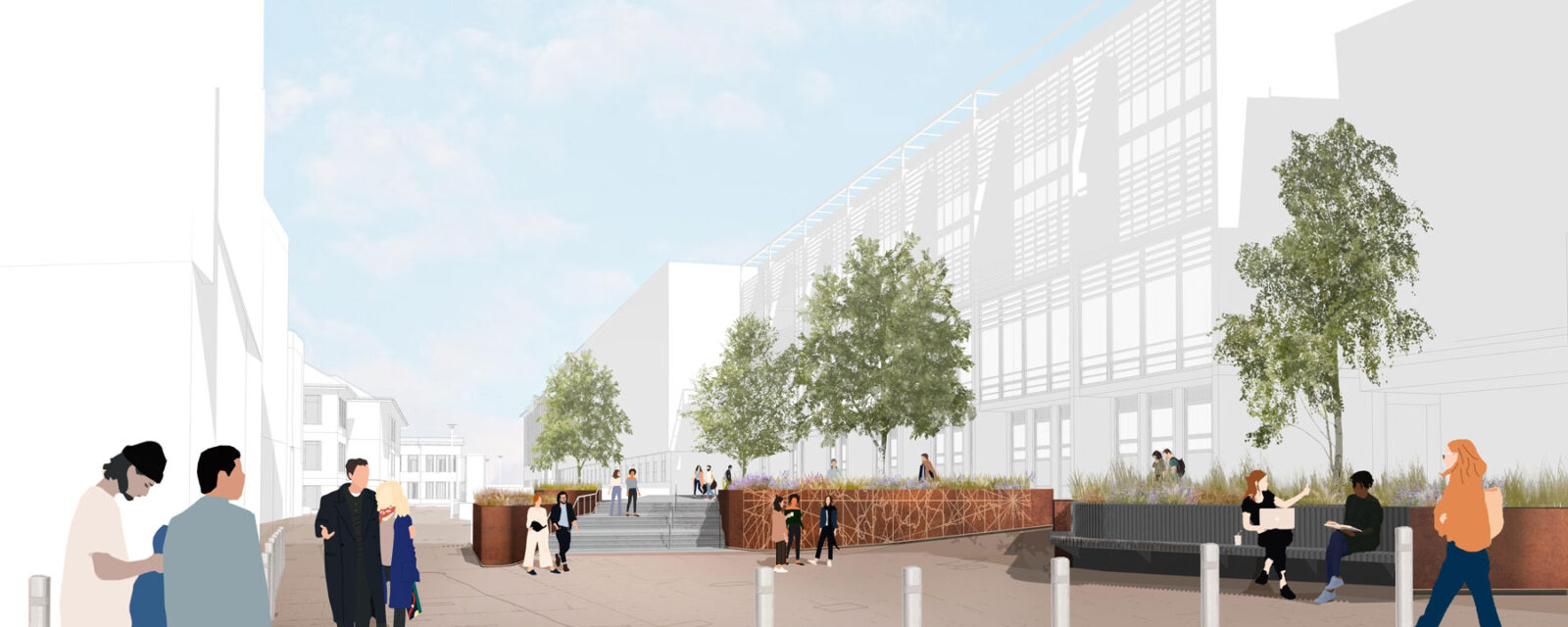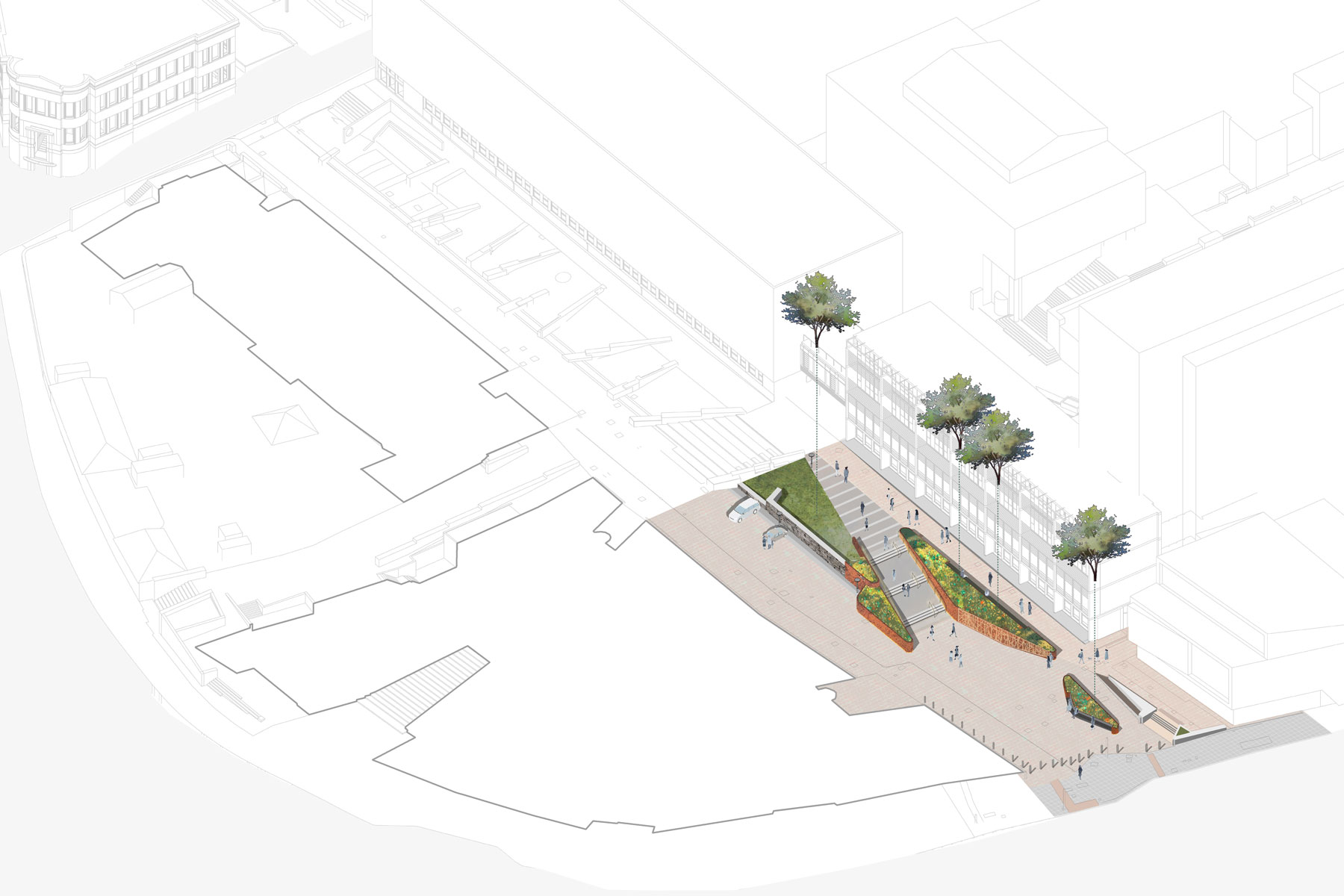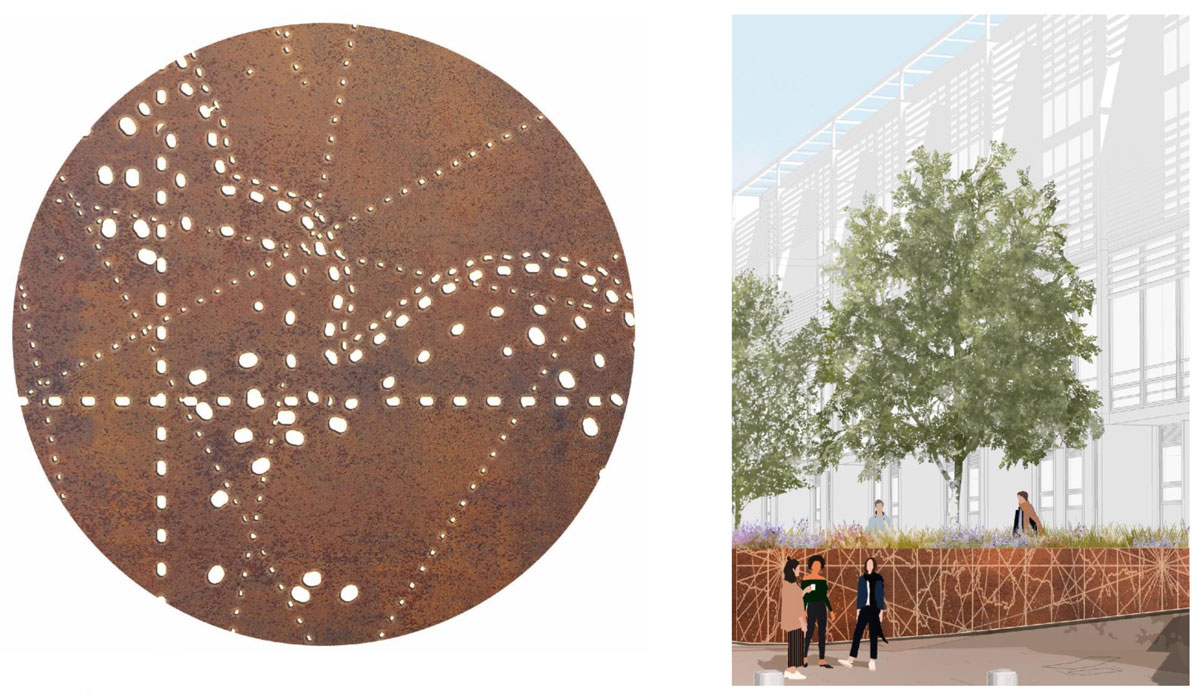
Campus Presence Project
- location:
- Plymouth
- client:
- University of Plymouth
- role:
- Public Realm Design
- sector:
- Public & Leisure
- status:
- On Site
New public realm interventions to improve the student experience and civic presence of the University within the city centre campus
The University of Plymouth is undertaking phased improvements to the campus as part of their 10-year estate’s strategy. The ‘Campus Presence’ project aims to provide targeted upgrades for current and prospective students.
Design Engine engaged in an extensive design development process with a wide project steering group, reviewing the entire campus for opportunities to improve the student experience and ‘public face’ of the University.
Working within a city centre campus environment also required consultation with numerous stakeholders and careful coordination with existing below ground services to ensure the design was responsive to the University community and cost-effective to construct.

Design Approach
Design Team
- main contractor:
- TEC construction ltd
- structural engineer:
- AECOM
- quantity surveyor:
- AECOM
The navigational heritage of the University is expressed through an abstracted backlit perforated steel feature wall, based on a historic chart of Plymouth Sound. This creates an outward-facing symbol of the University’s identity at this public location.

Works Under Construction
This current phase of the project focuses on the eastern end of Glanville Street known as the ‘Arts Quarter,’ which is adjacent to the newly opened ‘The Box’ museum and art gallery, the Arts Institute, Plymouth College of Art and The House Theatre. The proposal responds to the increasing importance of this area by creating a new public-facing route and entrance to the campus.
Three weathering steel planters provide improved planting and enclose a new stepped promenade into the heart of the campus. Recycled plastic seating is incorporated within the planter designs to create opportunities for socialising and study utilising a low maintenance and sustainable material.
Planning permission from Plymouth City Council for this phase of development was achieved in November 2020 and construction began in June 2021.